A good book can change your life. We have been deeply impacted by what we have read, and recently were discussing books that have truly been so thought-provoking we think about them constantly. Here’s our list!

Man’s Search for Meaning
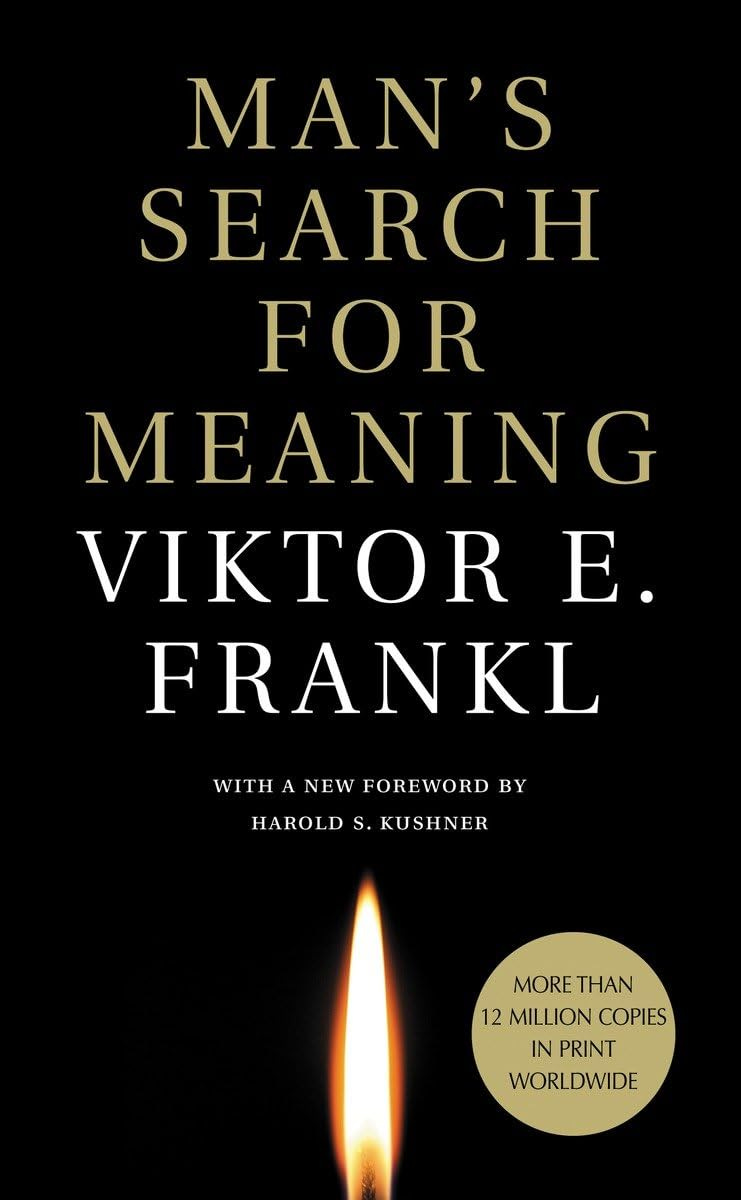
This is a book everyone should read. It was written by Viktor Frankl, a psychologist and Holocaust survivor, and is mostly about his Holocaust experience but from the perspective of the psychology of survival. He was a prisoner in 4 Nazi concentration camps, including Auschwitz, for four years. During that time his parents, brother, and pregnant wife all died.
What has stuck with us:
- The sheer destitution of being in a concentration camp with no hope of escape, and yet some people developed meaning in their lives that (like Frankl) helped them survive. We think about this whenever life gets hard and you remember your meaning.
- Describing getting a weak soup to eat, where the difference between starvation and survival often depended on the server scooping “from the bottom” of the pot or not. We think about this whenever we scoop something.
- Man’s ability to change is undeniable. He describes someone who previously struggled to go to sleep and who was bothered by any noise or discomfort, only to work one day in the concentration camp and then be able to sleep stacked on top of people on a wooden board with people snoring. Change is constant and we can always adapt.
Best of all? You can actually listen to it for free on Audible.
The Adventures of Tom Sawyer
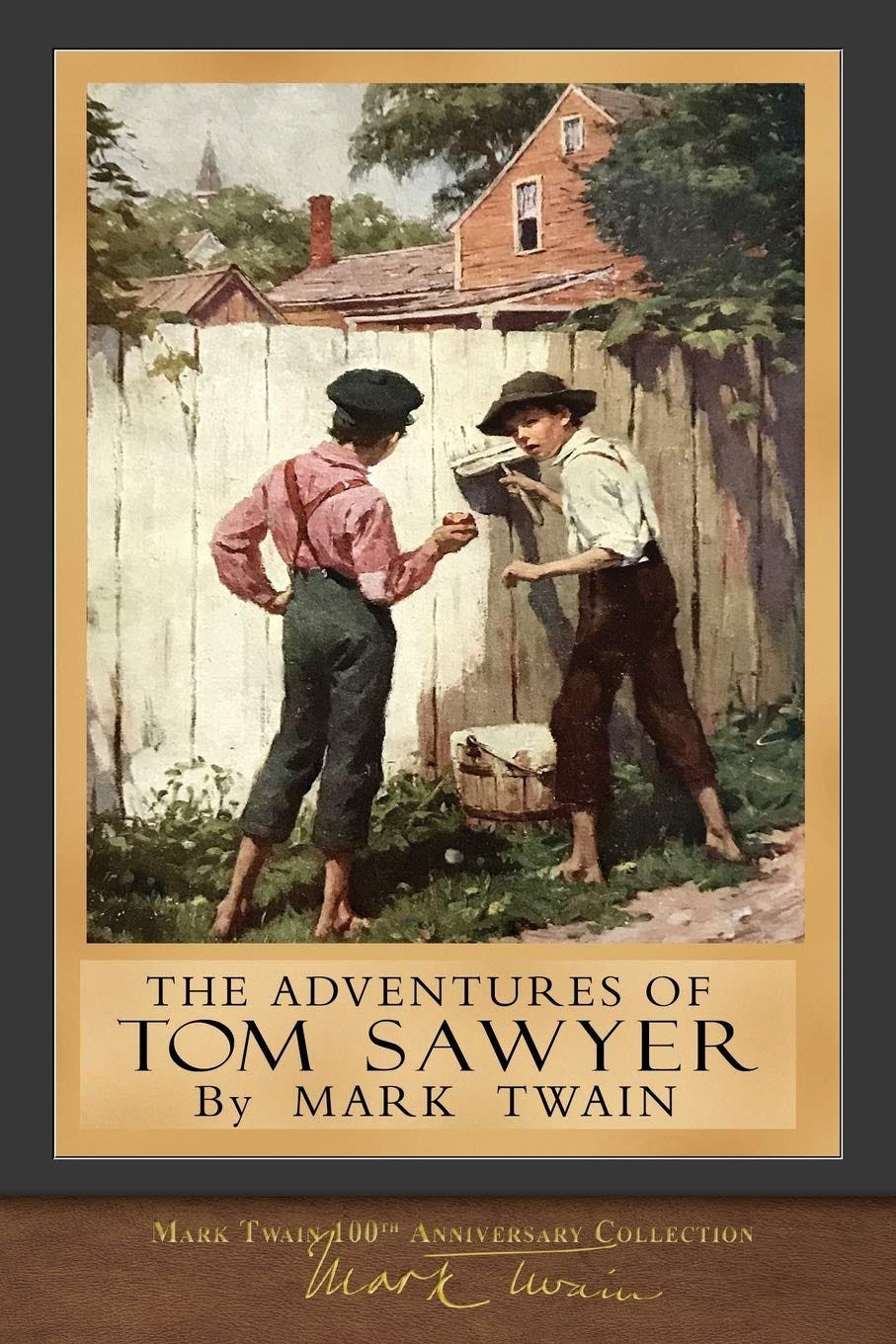
Published originally in 1876, this book has been a staple in homes for 150 years. If you haven’t read it as an adult, you should. It’s about two boys growing up by the Mississippi River in the 1840s and getting into all sorts of trouble. It’s full of adventure and gives a glimpse into the mind of a mischievous but well-intentioned boy.
What has stuck with us:
- Tom is just so curious and needs to find out things for himself. At several points he sneaks into places, like churches or caves, just for first-hand information. We think about it every time we have a question and whether we should ask or find out for ourselves.
- The joy of childhood. Reading this book, especially as a parent, made us realize we should keep our kids exploring, scraping knees, and untethered as long as possible. We deliberately ensure our kids have free time every day.
- Tom’s clever approach to problems. In what has become American legend, Tom is given a punishment to whitewash a fence, in which he tricks kids into paying him with their apples to wash the fence for him. It just shows that every problem has multiple approaches.
Also this book, being in the public domain, means you can read for free on Kindle.
The Boys in the Boat
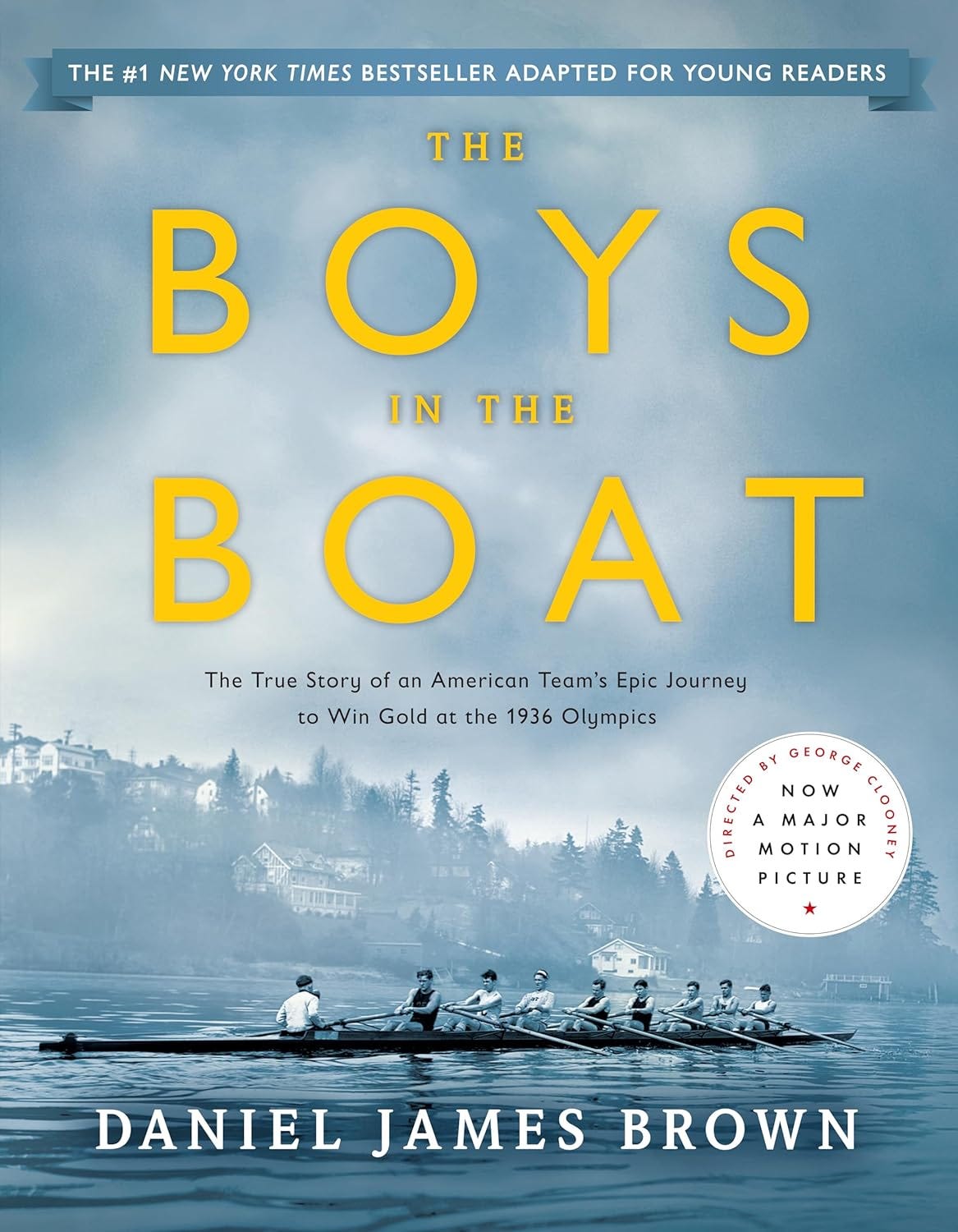
This is a book you can actually read twice and enjoy it just as much the second time. It’s a true story of the 1936 rowing team that went on to beat the Nazi’s in the 1936 Olympics. It follows a teenager named Joe Rantz, who has an impossibly hard childhood (he raised himself), how he learns to row, and the story of forming the best rowing team in the history of the sport.
What has stuck with us:
- When life is really hard, think of Joe. He just persisted and persisted through incredibly challenging circumstances, working multiple jobs, studying, and being a world-class rower. If Joe could do that, we certainly can get through whatever challenge lies our way.
- It’s never too late to make a goal. Joe hadn’t rowed before and a couple of years later he won gold at the Olympics. It encouraged Jason to persist to run an Ultramarathon, and Austin to become surprisingly take up road cycling.
- Times change quickly! Rowing was literally the top sport in America back in 1936. Everyone followed it and showed up to matches. What is popular now will fade, so we don’t invest much time into following the fads.
This book was recently turned into a movie, and while the book is better, it’s still worth a watch.
The Screwtape Letters
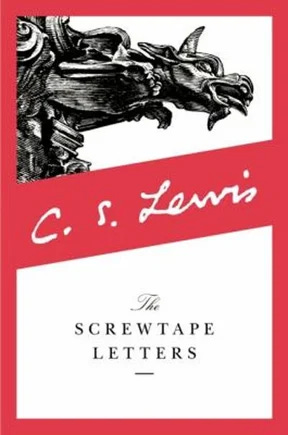
While legendary Christian apologist & fantasty writer C.S Lewis is perhaps best known for his “Chronicles of Narnia” series, this book is (in our opinion) his best work ever. It’s certainly one of the most unique literary formats you’ll ever read; the book is a series of “letters” written by an experienced devil (Screwtape) giving advice to his nephew (Wormwood) on how to tempt the young man Wormwood has been assigned to by the “powers below”
It is an incredibly insightful commentary on human nature, and the tendencies each of us have towards both good & evil.
What has stuck with us:
- After reading this book, you’ll never look at your own actions and thought patterns the same way again. For example, Screwtape advises Wordwood to build up aggravation between the young man and his mother by encouraging him to always insist on doing what she (the mother) wants, ostensibly out of “unselfishness”, but in reality, the young man unconsciously is using “unselfishness” to show off how good of a person he is, and the mother in return resents being the object of platitudes designed to make her son look better. Lewis notes that people often will insist on doing things that others want to keep this game up for quite some time and thus “no one ends up doing anything they actually want to do and would have been far better off just stating that they would really prefer to do XYZ”
The book is short (and inexpensive) on Amazon, but we particularly recommend the audiobook version read by Joss Ackland (who has one of the most captivating yet chilling narrator voices you’ll ever listen to).
The Innovator’s Dilemma
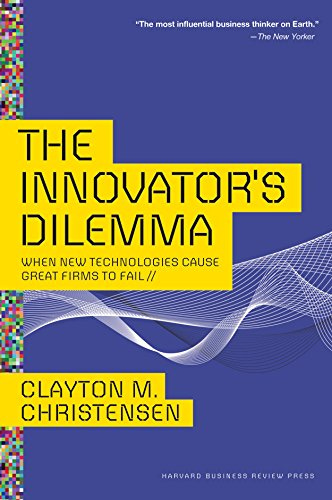
This is the only business book on the list, but it’s for good reason. This book is the foundation of “Disruptive Innovation Theory” (the theory that propelled Harvard professor Clayton Christensen to worldwide fame). The book explores a fascinating question: “Why do so many great companies, led by smart people eventually go out of business?”.
The counterintuitive answer is because these companies are ultimately undone by the very thing that made them successful in the first place (improving their products and services for their most profitable customers). In other words, doing the “smart/right” thing is actually the wrong thing to do!
What stuck with us:
- After reading this book, we started to see constant areas where it actually made more sense to sacrifice a short term gain in favor of a long term benefit. And not only in business, but in our relationships, hobbies, and other interests.
It’s a somewhat dense read, but well worth the time. You can get the book on Amazon or honestly just read up on a lot of the articles + YouTube videos that explain the concepts really well. The best we’ve found is a lecture given by Dr. Clayton Christensen himself.


